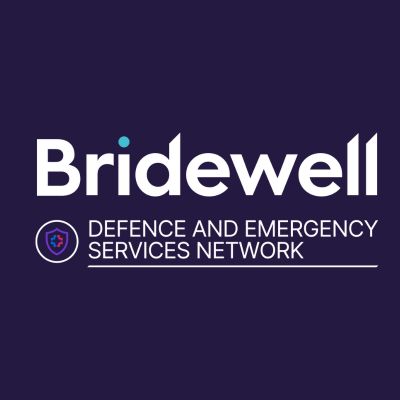Many people may think that to become a Penetration Tester requires a dedicated degree in an associated subject. Whilst this is clearly beneficial, it is not always necessary. Here at Bridewell, we employ a number of Penetration Testers who are previously serving military personnel and who have come from less traditional pathways into the industry.
In this blog, we’ll examine the backgrounds of those members of the Penetration Testing Team who are ex-military, and how they found their way into the industry and Bridewell.
If you’d like to make a start on your journey, see our careers page or the Bridewell Academy.
Why Are Ex-Military Good Penetration Testers?
Penetration testing is a highly technical field which requires a large amount of technical knowledge, soft skills and an ability to think outside the box. This is where the values and standards ingrained in military personnel can set them apart, helping them develop the requisite soft skills to succeed in cyber security and penetration testing roles.
The ability of ex-military personnel to communicate with clients and stakeholders, their problem-solving mindset and their ability to work under pressure are all transferable skills that are invaluable in these roles. However, although the military provides a plethora of transferrable skills, penetration testers require knowledge in a multitude of technical areas.
Gaining this knowledge and successfully transitioning from the military to a role in penetration testing can seem like a daunting task. Fortunately, there are many resources and certifications available to lay the foundations for success, and with the right attitude and commitment to study it is more than achievable.
Ex-military personnel within our Penetration Testing Team have served in various ranks and cap badges within the military, with varying roles and experiences. However, they all share an abundance of transferable hard and soft skills which can be applied to any role in the civilian walk of life. To highlight this, four members of our penetration team have shared their backgrounds in the military and how this enabled them to transition into their current roles.
⚫ Mike Booth, Penetration Tester and Former Commissioned Officer
Military Service
After gaining a Bachelor’s Degree in Business Management, I took the decision to join the British Army as a Commissioned Officer. I completed a year of intense training at the Royal Military Academy Sandhurst (RMAS), the culmination of which saw me commission as a Second Lieutenant in the Royal Logistic Corps (RLC).
During my time in the Army, I served in a number of roles in various units including Troop Commander, Operations Officer, Squadron Second in Command, and Officer Commanding (OC) of a Stores Troop within a REME Battalion.
I also specialised as an Ammunition Technical Officer (ATO), one of the longest and most academically arduous courses in the Army. After completing the course, I deployed to Somalia for 7 months to support the UN and African Nations armed forces in a lead ATO role, which was certainly an interesting experience.
Transition From Military Service to Cyber Security
After 8 years in the Army and proposing to my now wife, I decided that it was time to leave the Army lifestyle behind me. I have always been interested in computers and have a passion for all things technical. However, I did not have any technical knowledge or experience outside of personal interest, and after some research I decided that penetration testing was the ideal choice for me.
The Army offers a lot of great support and training courses for transitioning from the military into civilian life, although at the time I left the Army their knowledge of, and training opportunities for, penetration testing were somewhat limited. I did however use the training support they could offer to complete Cisco Certified Network Associate (CCNA) and PA Consulting Certified Security Testing Associate (CSTA) certifications.
During this time I was also made aware of Tech Vets, who are a fantastic resource and have a highly active and supportive network of ex-military personnel and partner with a large number of cyber security organisations (including CREST, SANS, Immersive Labs, Cybrary, TryHackMe, Google, and many others). Through Tech Vets I was able to obtain free access to Immersive Labs and Cybrary courses.
I committed around 15-20 hours a week to studying over many months to gain a solid foundation in the technical knowledge and skills required for a career in cyber security. At the end of this I undertook and successfully passed the Tiger Scheme QSTM course.
My time and perseverance paid off, and upon leaving the Army I landed a role as a Security Consultant at a company specialising in penetration testing. I stayed with the company for a year, gaining valuable real-world experience before deciding to look at other options, ending up in my current role at Bridewell.
Current Role and Experience at Bridewell
I am currently employed at Bridewell as a Penetration Tester, and have been at Bridewell for over two years. Bridewell have been extremely supportive during my time employed here and I have gained a lot of practical experience in a variety of different testing types. It is a great place to work where everyone in valued, there is a strong team ethos and we work together and support each other to achieve our goals, not dissimilar to the Army.
⚫ Daniel Pall, Senior Lead Penetration Tester and Former Electronic Warfare Systems Operator
Military Service
Joining the military was something that had always appealed to me. I joined the Army when I was 19 as an Electronic Warfare Systems Operator, which appealed to me as it was heavily based in technology and had various career routes, both within and outside of the Army.
I chose to go down the route of Electronic Countermeasures within an Explosive Ordinance Disposal (EOD) team, so focused heavily on the RF spectrum and defeating/ mitigating remote control IEDs. I served in the Army for 4 years, and decided it was time for me to leave and pursue something that, for me, was more of a lifelong career.
Transition From Military Service to Cyber Security
The more I looked into cyber security and penetration testing as a job, the more I decided that was what I was going to aim for. I decided to use the funding for higher education that is available to military personnel to study a computer science degree, as this both appealed to me and seemed like a potential route into the industry.
Another resource that is made available to military personnel once they have given their notice is a job site where companies can advertise roles they would consider ex-military personnel a good fit for. On this site, there was an advertisement for a cyber academy. The cyber academy was put together by a recruitment consultancy and a cyber training provider in conjunction with an employer.
The academy consisted of a two-day interview phase where applicants were put through a technical assessment followed by various interviews with managers from different departments, such as GRC, penetration testing, etc. The final stage involved all the interested managers joining a conference call to offer a role in their team and the applicants deciding which team they would like to join. One of the managers on the call with me was from the penetration testing team, which made the decision easy for me.
From that stage I was employed by the company and, following a standard onboarding process, I began a 10-week training academy to gain technical certifications both in general cyber security and specific to penetration testing. This included courses such as CompTIA Net+ and Sec+, CISMP, a host of GCHQ approved courses in areas such as digital forensics and SOC operations. Upon completion of this course, I began working within the penetration testing team and delivering on projects. I remained at this company for 3 years before joining Bridewell, where I have been a member of the penetration testing team for coming up to 4 years.
Current Role and Experience at Bridewell
I am currently employed at Bridewell as a Senior Penetration Tester. The range of jobs and the team dynamic we have within the penetration testing team means my skills and experience have vastly improved since joining. Flexibility with training means I can choose a path that is of interest to me and pursue it. I have done courses in IoT penetration testing and red teaming, expanding my skillset and knowledge as well as opening myself up to different types of testing.
⚫ Thomas Coombe, Penetration Tester and Former Infantryman
Military Service
I joined the Royal Marines Commandos shortly after leaving school. I spent a year at the commando training centre due to injury and then went on to join 42 Commando. During my time at the unit, I was sent to west coast of Africa on a short-term training team to help with conducting training sessions for local military units in each country and then went on to help with the Ebola pandemic in Serria Leone. I was then allowed to join the Special Forces Support Group (SFSG) and spent four years there. During this time, I was lucky enough to conduct exercises in the middle east and counter terrorism in the UK.
Transition From Military Service to Cyber Security
After my time at SFSG, I decided it was time to move on and start my transition into civilian life. A friend of mine had previously transitioned from the Royal Marines and had become a Penetration Tester. After my own research, I decided this was the route I would like to go down as well.
I started off my training by watching and studying material from Professor Messer with his courses on Networking and Security, this helped me gain a basic understanding of cyber and cyber security. Once I had completed these courses, I started to find online courses, directed at penetration testing, I used popular websites such as Udemy and YouTube to help me improve my knowledge of penetration testing.
Once I had this knowledge, I went on to purchase the OSCP course where I gained valuable skills to help me pass the exam on my second attempt. However, I did not decide to get a job in the industry due to wanting to travel with my girlfriend so put the cyber security job hunt on hold while we went away, but due to the covid pandemic, we only had three months away.
Once I returned from our travels, the job market was poor due to the pandemic and I was unable to get a job in penetration testing, so decided my best chance of doing this was to gain another certificate, CREST Practitioner Security Analysis (CPSA). This exam was tough for me as I was working as a labourer whilst studying at the same time, but on my second attempt, I was able to pass the exam.
With two industry recognised certificates, I was able to land a job with a Penetration Testing company, where I stayed with them for over a year. During this time, I was able to learn new skills in penetration testing and built upon ones already learned through doing online courses. Whilst at the company I was able to pass my CREST Registered Penetration Testers exam, this exam allows penetration testers to conduct CHECK testing and is highly sought after. I spent some time at another company but shortly realised this was not the environment that I would be able to prosper, which led to Mike Booth recommending Bridewell as a great company to work at and shortly after that I was offered a role.
Current Role and Experience at Bridewell
I am now a Penetration Tester at Bridewell and have been at here for nearly two years. Bridewell has given me the opportunity to improve my skillset by allowing me to train in areas that I was weak in. This was achieved by allowing me to shadow strong penetration testers until I was at a proficient level.
During my time at Bridewell, I have been on various assessments that I would have otherwise have not been given the opportunity to work on. Bridewell is a great place to work, with supportive line managers that really do care about you, a thing that I have found to be rare in the industry. The overall team are extremely helpful, which allows for a good environment to work in.
⚫ Jonathan McDougal, Senior Penetration Tester and Former Communications Systems Engineer
Military Service
After completing a Uniformed Public Service course coming out of college, I decided to join the army and see what was available to me upon completion of the initial entrance examinations. I completed three months of intense soldier training at the Army Training Centre (ATC) Pirbright followed by a year’s trade training at the Defence School of Communications Information Systems (DSCIS) which ended with my qualifying as a Communications Systems engineer Lance Corporal (LCpl) in the Royal Corps of Signals.
During my time in the Army, I served in a number of detachments in various units before becoming a Reacher Detachment Commander (Satellite Communications Platform) within 16 Signal Regiment. I also commanded the advanced radar systems team while deployed in the Falklands over a 6 month period, which was tasked with monitoring and maintaining the systems that make it possible to keep aircraft in the air.
Transition From Military Service to Cyber Security
In my final few years as a communications systems engineer, an opportunity arose where signal regiments were forming their own Cyber Protection Teams (CPT) and competing against each other in cyber warfare. This would consist of around 10 “Blue” teams with an overall “Red” team of volunteer cyber specialists who would attack the network.
During these games, we were tasked with building and securing a network from scratch over the span of a few days before the red team were let loose and tried to do everything, they could do bring the network down. These events and the training that was given during by the red teamers cemented my choice in moving into a cyber security role. Observing what was happening “from the other side”, I decided I would move down the “red” team route and follow a penetration tester role within cyber security.
After searching for various courses on LinkedIn I was lucky enough to come across a service leaver training programme which would take you from zero experience to fully trained and offer you a role within a well-established cyber security company. This provided me with all the relevant qualifications and initial foothold into the world of cyber security.
Current Role and Experience at Bridewell
I am currently employed at Bridewell as a Senior Penetration Tester and have now been at Bridewell for over three years. Bridewell and the testing team have been extremely supportive during my time employed here and my experience testing various platforms and different infrastructure have increased ten-fold.
My confidence in performing on site testing where physical access, misdirection and “blending in” have skyrocketed with each new test. Bridewell is a great place to work where everyone is valued for their knowledge and individual skillset, everyone has each other’s backs and there is no question left unanswered when asked within the team chat.





